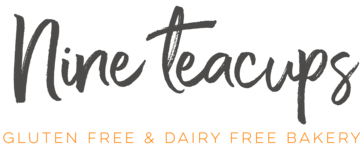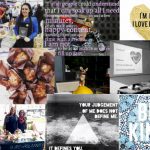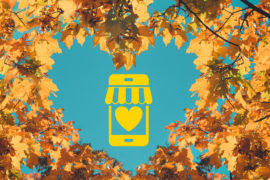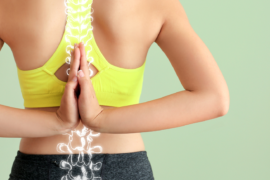Hannah here. I’ve been reading so much about Coeliac Awareness week that it has inspired me to let the internet know about my experience with food intolerance/allergies. Issi over at Gluten Free London wrote a great post about getting glutened and I highly recommend reading it.

This week is Coeliac Awareness week (11th-17th May). Approximately 1% of the population has coeliac disease, of that 1%, only 24% are medically diagnosed. What this means is that half a million people in the UK alone are living with coeliac disease without being aware.
An aim of Coeliac Awareness week is to create awareness about the symptoms of coeliac disease so people can be properly supported in seeking diagnosis, managing their condition and avoiding long term health complications associated with going undiagnosed and continuing to eat gluten (these include “osteoporosis, anaemia and even bowel cancer.” (Emine Saner, The Guardian, 2015).
My food intolerance / food allergy journey started when I was 18. Stabby abdominal pains, bloating, muscle weakness, fatigue, nausea, and brain fog became a daily thing, every so often vomiting would proudly present itself. Leading to photo’s like this:
After a while there were a few standout culprits; Wheat and Dairy. My GP wasn’t terribly helpful but, 8 years later, I found new GP’s (who are very supportive and I am incredibly grateful for) who offered me a coeliac test so long as I went back to a gluteny diet for a while – as I’m sure anyone who has suffered with pain or illness as a direct result of the food they eat would agree; I didn’t want to go back there. Thankfully, they understood that and are happy to follow my lead.
After a pretty nasty experience with a housemate who should have known better, I enjoyed anaphylaxis….it wasn’t great and I wouldn’t recommend it. More recently, our food adventure to Italy and a brush with wheat (as I’ve not been diagnosed I can’t say with certainty that gluten was the culprit) resulted in hives, tightening of my windpipe and muscle tremors in my calves that meant I had to ask for help putting on my shoes. As a person in their 20’s, I can’t say it was my finest moment. On top of that there is occasional vomiting, bloating to the point that I could easily pass as pregnant (a friend of mine took a photo of me shortly after we had graduated and text it to my other friends, within minutes I received text congratulations, shock and an offer of marriage as a gesture of support), joint pain and so much fatigue.
Unfortunately, food intolerances, allergies and coeliac disease sufferers are often confused with being fussy eaters or following fad diets. Some of us are low-carb, most of us aren’t low-carb for fun reasons. It’s also easy to make jokes about illness when it doesn’t affect you. Outside of the pain, the reality is that an awful lot of planning has to be done before venturing out. Disclosing Coeliac disease/food intolerance/food allergies isn’t our way of being difficult. It’s our way of politely saying “please don’t feed me anything that will kill and/or hurt me”.
Now, as a gluten-free, dairy-free bakery we get to meet lots of people who have to be gluten free. They tell us their stories, and we exchange our food intolerance/allergy/coeliac history as if they’re going out of style. Contrary to popular belief, we’ve found that being a gluten-free, dairy-free bakery doesn’t attract fussy eaters or fad-dieters, if anything the most common statement that we hear from non-customers is “I can eat gluten, so this isn’t for me”. Which is a strange way to look at food and, is perhaps, more restrictive than the perspective of your everyday gluten-free foodie.
Coeliac UK have developed a diagnosis quiz for anyone who feels that they might be Coeliac. It’s a short quiz and will suggest whether you should seek diagnosis and provide you with a printout to take to your Doctor.






